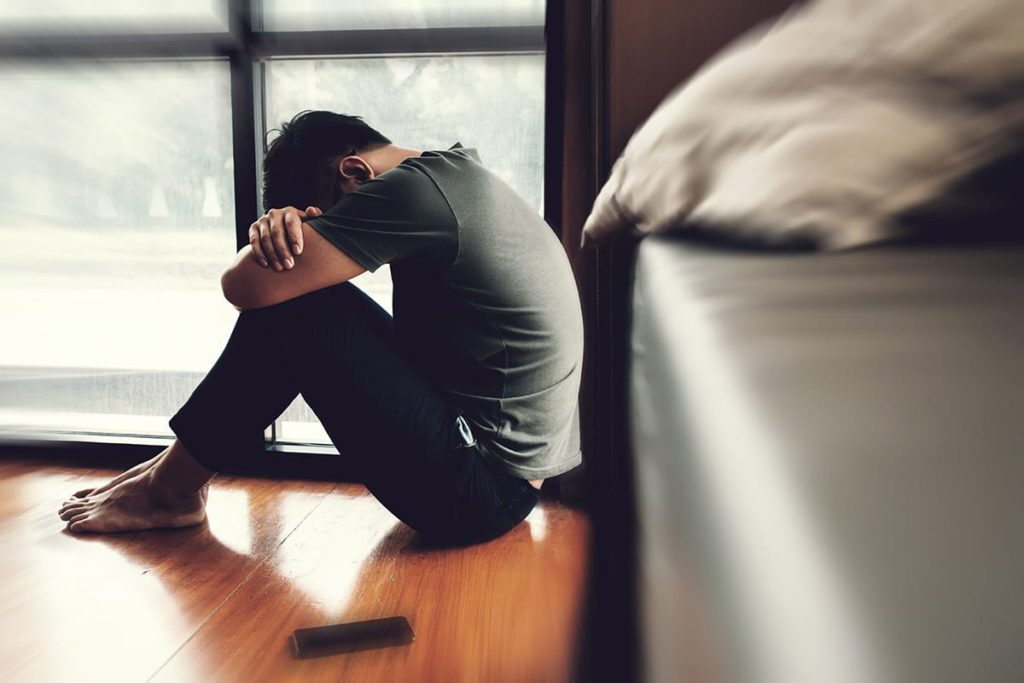Alcohol addiction is the most common addiction. Luckily, several treatment options are available for people looking to overcome an alcohol use disorder. A treatment program will help a person get sober and equip them with the tools needed to maintain sobriety. One aspect of doing so is to recognize signs of alcohol relapse.
An alcohol relapse can be dangerous, especially if a person’s alcohol use disorder was severe before sobriety. Despite this, a relapse should not discourage someone from getting back on track with recovery. Many schools of thought consider relapses a normal part of the process for people recovering from alcoholism.
To learn more about alcohol addiction treatment, contact Vertava Health today by calling us at 844.470.0410. We can help you find a treatment program that fits your individual needs and guide you on the path toward sobriety.
What Is An Alcohol Relapse?
In the simplest terms, an alcohol relapse is when someone returns to drinking after a period of sobriety. While a relapse can often bring with it feelings of shame and guilt, it’s important to keep in mind that relapse is often believed to be just another part of the recovery process. However, there are certain steps a person can take to be aware of and prevent a possible relapse.
Signs of Alcohol Relapse
It’s helpful to learn the signs of alcohol relapse. A relapse typically doesn’t happen overnight, especially for someone who has been sober for an extended period of time. An alcohol relapse is generally believed to occur in three stages: emotional, mental, and physical. The first two steps signify the progression toward an actual relapse, while the last stage is the actual participation in drinking alcohol.
Stage One: Emotional Relapse
Emotional relapse is when a person’s emotions and behaviors begin to steer them away from recovery. They may not be actually thinking about or planning to drink during this stage.
Common signs of emotional relapse include:
- Isolation
- Mood swings
- Anxiety
- Defensiveness
- Not asking for help
- Poor eating and sleeping habits
Stage Two: Mental Relapse
Mental relapse is the next stage of an alcohol relapse and is when a person begins to experience cravings for alcohol. Someone may initially think about using alcohol idly and, if the situation is not addressed, may progress to actually planning to drink.
Symptoms of a mental relapse may include:
- Glamorizing past alcohol use
- Hanging out with people you used to drink with
- Fantasizing about drinking alcohol
- Planning out a relapse
- Lying
- Experiencing cravings
Stage Three: Physical Relapse
If nothing is done to combat the emotional and mental relapse stages, a person will likely progress to the physical relapse stage. A physical relapse is when a person actually participates in drinking.
Alcohol Relapse Triggers
Alcohol relapses are related to changes in the brain that take place when a person becomes addicted to alcohol. These changes make it difficult to quit drinking and even harder to stay sober for an extended period of time.
While everybody is different, there are a few triggers that seem to be most common among people who have relapsed.
These triggers include:
- Withdrawal and post-acute withdrawal symptoms
- Certain people, places, and things associated with previous alcohol use
- Lack of self-care practices
- Relationships
- Sex
- Certain emotions and feelings, such as being angry or lonely
- Isolating
- Stressful life situations
Alcohol Relapse Prevention
The sooner a person takes action to prevent a possible relapse, the more successful they will be at staying sober. Early relapse prevention often entails becoming aware of dangerous emotions, thoughts, and behaviors and working to change these.
Another way to prevent alcohol relapse is to participate in aftercare recovery groups such as 12-step meetings. Support groups provide a safe place to share how a person is feeling and to discuss triggers and difficult emotions with other people. Groups like AA also give people a place to connect with other individuals who are experiencing the same things.
Asking for help is yet another step a person can take to prevent a relapse. Reaching out to a sponsor or other trusted individual and talking about urges or cravings can help dispel them.
Other techniques to prevent relapse include practicing regular self-care, participating in relapse prevention programs, and focusing on one day at a time. The more relapse prevention activities a person participates in, the more likely it is that they will remain sober.
Get Treatment for Alcohol Abuse at Vertava Health
Contact a treatment specialist today to learn more about the symptoms, triggers, and prevention of alcohol relapse. At Vertava Health, we offer individualized treatment plans that address a person’s unique needs in addiction recovery. Don’t let alcohol control your life. Contact us by calling 844.470.0410.


